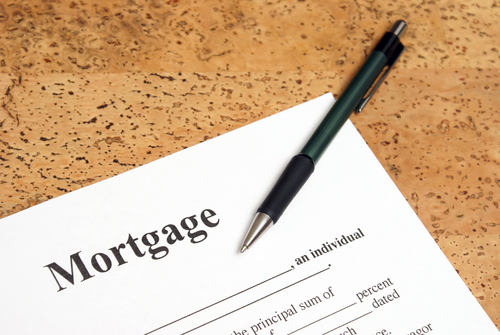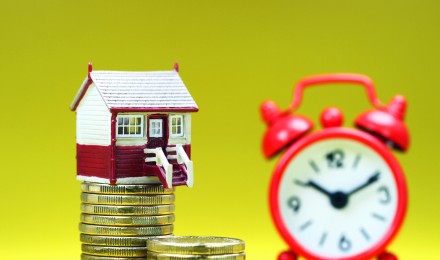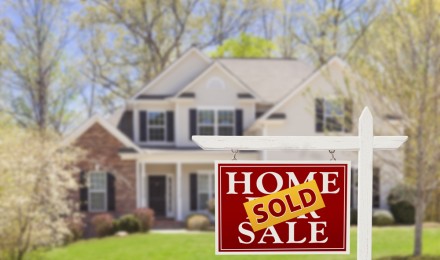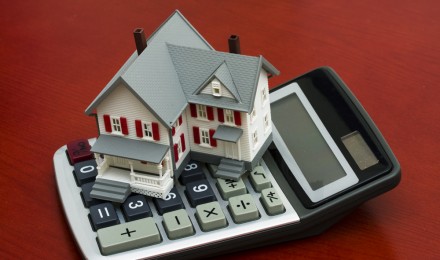When you want to buy a home today, it is most likely that you will need to obtain a mortgage for it. What is a mortgage? A mortgage is another word for a home loan, and there are many types of home loans available, as well as important features and options that you need to know in order to be an intelligent consumer. Many thousands of dollars can be saved on a mortgage if you understand what you want and need.
A mortgage can be obtained for your new home in many different forms. In most cases, you will need to be able to have a down payment of about 20 percent of the home’s value before you will be given a mortgage, and have a good credit score with little debt. Lenders do not give mortgages out as easily as before, and it will be harder to prove credit-worthiness today, but some lenders still dispense no money down home loans or even bad credit home loans – for a higher interest rate.
Types of Mortgages
There are basically two types of mortgages available – a fixed rate mortgage and an adjustable rate mortgage. A fixed rate mortgage has a single interest rate that stays the same throughout the life of the mortgage, which means that your payments will always be the same. An adjustable rate mortgage will usually have a low fixed interest rate to start with, but this becomes adjustable afterwards based on market rates. The actual interest rate may change annually or monthly.
Benefits of Each Type of Mortgage
A fixed rate mortgage (FRM) is excellent if you want stable and predictable payments, but the interest rates typically will be higher than for adjustable rates at the start. According to the Mortgage Professor, this type of mortgage becomes fully amortized (paid off) at the end of the mortgage term.
Adjustable rate mortgages (ARM) start out with a lower interest rate, but they will change annually. BankRate notes that this type of mortgage may offer protection through a margin of sudden increases in interest rates, such as 2.75%, but they advise that you watch out for the term “payment caps” – which means that there is no ceiling on how high the rates might go.
A variation on this is called a “hybrid mortgage,” which may be attractive to people wanting to buy a larger house than what they can currently afford. Then, when interest rates increase –often five or seven years later – hopefully their income has also increased. A potential problem is that the unpredictability of the market may force interest rates to become too high. This type of mortgage is excellent for people who are only planning to live in that home temporarily, and for people looking to invest in real estate for homes they want to fix up and sell.
Special Mortgages
Other mortgages are also available, says USA.gov, but these generally only apply to special groups of people. FHA loans, for instance, are available for people who need to have a very low down payment, but who otherwise meet the qualifications for a home loan. VA loans are guaranteed to veterans or their dependents, and they have competitive rates and may provide loans for low or even no down payments.
A reverse mortgage is for seniors who need extra cash for living in their retirement years, and it enables them to draw upon their home’s equity value. The home owner makes no payments but is instead paid by the lender. At the end, the home belongs to the lender because they bought it through the loan.
When you want to buy a home today, it is most likely that you will need to obtain a mortgage for it. What is a mortgage? A mortgage is another word for a home loan, and there are many types of home loans available, as well as important features and options that you need to know in order to be an intelligent consumer. Many thousands of dollars can be saved on a mortgage if you understand what you want and need.
A mortgage can be obtained for your new home in many different forms. In most cases, you will need to be able to have a down payment of about 20 percent of the home’s value before you will be given a mortgage, and have a good credit score with little debt. Lenders do not give mortgages out as easily as before, and it will be harder to prove credit-worthiness today, but some lenders still dispense no money down home loans or even bad credit home loans – for a higher interest rate.
Types of Mortgages
There are basically two types of mortgages available – a fixed rate mortgage and an adjustable rate mortgage. A fixed rate mortgage has a single interest rate that stays the same throughout the life of the mortgage, which means that your payments will always be the same. An adjustable rate mortgage will usually have a low fixed interest rate to start with, but this becomes adjustable afterwards based on market rates. The actual interest rate may change annually or monthly.
Benefits of Each Type of Mortgage
A fixed rate mortgage (FRM) is excellent if you want stable and predictable payments, but the interest rates typically will be higher than for adjustable rates at the start. According to the Mortgage Professor, this type of mortgage becomes fully amortized (paid off) at the end of the mortgage term.
Adjustable rate mortgages (ARM) start out with a lower interest rate, but they will change annually. BankRate notes that this type of mortgage may offer protection through a margin of sudden increases in interest rates, such as 2.75%, but they advise that you watch out for the term “payment caps” – which means that there is no ceiling on how high the rates might go.
A variation on this is called a “hybrid mortgage,” which may be attractive to people wanting to buy a larger house than what they can currently afford. Then, when interest rates increase –often five or seven years later – hopefully their income has also increased. A potential problem is that the unpredictability of the market may force interest rates to become too high. This type of mortgage is excellent for people who are only planning to live in that home temporarily, and for people looking to invest in real estate for homes they want to fix up and sell.
Special Mortgages
Other mortgages are also available, says USA.gov, but these generally only apply to special groups of people. FHA loans, for instance, are available for people who need to have a very low down payment, but who otherwise meet the qualifications for a home loan. VA loans are guaranteed to veterans or their dependents, and they have competitive rates and may provide loans for low or even no down payments.
A reverse mortgage is for seniors who need extra cash for living in their retirement years, and it enables them to draw upon their home’s equity value. The home owner makes no payments but is instead paid by the lender. At the end, the home belongs to the lender because they bought it through the loan.







